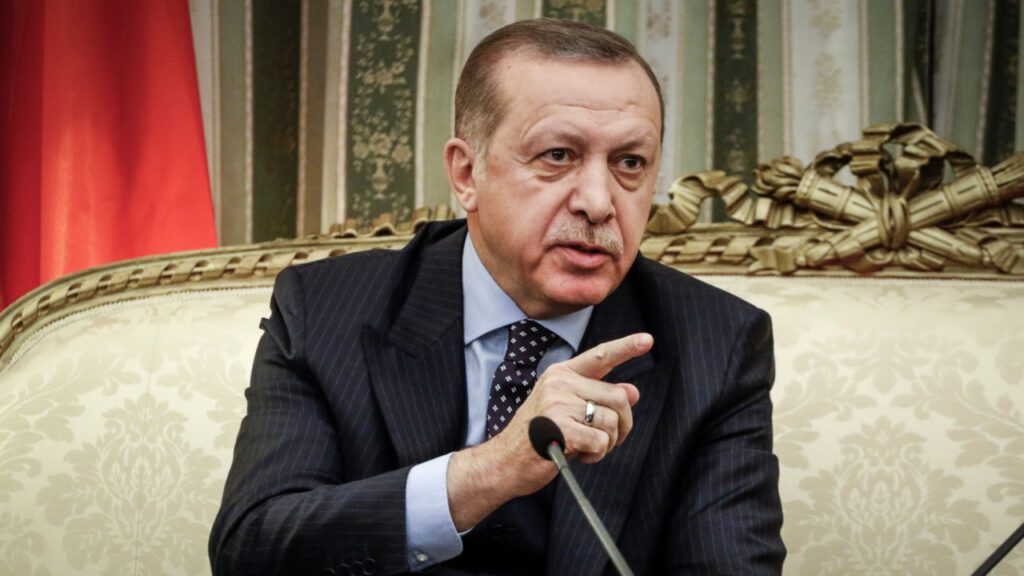Could Putin Really Have Cancer – The Key Points and Summary
- Rumor Origins and Timeline: Health speculation surrounding Putin escalated after Russia’s full-scale invasion of Ukraine in 2022, with unverified reports suggesting he might be suffering from cancer or Parkinson’s. Still, many intelligence analysts and medical observers remain skeptical of these claims.
- Ukrainian Intelligence Claims: Ukrainian officials have actively pushed health-related theories. MP Yelizaveta Bohutska has referenced chemotherapy and coup plots tied to Putin’s condition, while intelligence chief Kyrylo Budanov publicly stated he believes the Russian leader has cancer.
- Limited Evidence Base: Theories are often based on circumstantial or visual “evidence”—including photos of Putin looking “mad-eyed,” videos showing a limp, and vague mentions in leaked U.S. defense documents.
- U.S. Intelligence Assessment: According to reports, three senior U.S. intelligence officials reviewed claims that Putin underwent cancer treatment in 2021, but ultimately concluded the reports lacked clear supporting data.
- Strategic Information Warfare: Health rumors serve a broader psychological and propaganda purpose. In the absence of reliable medical information, speculation is amplified—both by adversaries and the Kremlin’s own culture of secrecy—fueling international uncertainty.
Vladimir Putin Health Rumors: Fact or Fiction?
Rumors about Vladimir Putin’s health aren’t new, but they’ve intensified significantly since 2022. Western media outlets, Ukrainian officials, and some intelligence leaks have repeatedly suggested the Russian president may be battling serious illnesses like terminal cancer or Parkinson’s disease. Still, no credible medical source has confirmed any diagnosis.
Much of the speculation hinges on the tight control the Kremlin maintains over information, making it nearly impossible to verify or disprove claims. In this information vacuum, even the smallest clues, like facial swelling or changes in gait, get magnified into major talking points.
Here’s what’s often cited as “evidence”:
- Physical Signs: Public footage and photos suggesting a bloated face, trembling hands, a stiff gait, or visible discomfort.
- Medical Scheduling Gaps: Changes to Putin’s travel schedule or unexplained absences have been interpreted as possible medical interventions.
- Past Illness Reports: Allegations from opposition figures, Ukrainian intelligence, and some Western analysts suggesting he’s undergone chemotherapy or other procedures, especially in 2021.
In authoritarian systems like Russia’s, where personal health is treated as a state secret, such speculation becomes inevitable and potentially useful in shaping perceptions at home and abroad.
How Rumors About Putin’s Disease Affect Global Politics
Speculation about Vladimir Putin’s health isn’t just tabloid fodder; it has real implications for global stability. When world leaders, intelligence agencies, and defense analysts weigh Putin’s perceived health, they’re often trying to anticipate how long he might remain in power, who could replace him, and how internal power dynamics in Moscow might shift. All of this can influence decisions far beyond Russia’s borders.
Diplomatic strategies are shaped by these calculations. If key global actors believe Putin may be seriously ill or nearing the end of his tenure, they may adopt a wait-and-see approach on long-term negotiations or military responses. NATO members, for example, may reassess forward deployment strategies based on whether they expect continuity or change in Russian leadership.
The economic ripple effects are also significant. Markets respond to uncertainty, especially when it involves a nuclear-armed country with outsized influence on global energy supplies. Oil prices, for instance, have surged in the past when instability inside Russia appeared likely. In this way, even unverified health rumors about Putin can shake investor confidence and spur geopolitical recalibrations.
What Are the Latest Putin Health Rumors?
In 2024 and 2025, the swirl of rumors surrounding Vladimir Putin’s health has only deepened. Much of the speculation centers around recurring claims that he is undergoing treatment for cancer, possibly chemotherapy, and that Kremlin insiders are closely guarding his medical status. While no official diagnosis has been released, media and intelligence chatter continues to circulate.
Here are some of the more recent developments:
- Cancer Treatment Claims: Ukrainian MP Yelyzaveta Bohutska alleged that a plan to oust Putin was scheduled to coincide with one of his chemotherapy sessions. Though unverified, this claim was widely reported and added fuel to the fire.
- Pentagon Leak References: Leaked U.S. intelligence documents from 2023 mention assessments that Putin may have undergone cancer treatment in 2021. However, U.S. officials later cautioned that the information may be inaccurate or outdated.
- Observational Signs: Recent footage of Putin has shown him gripping tables tightly, walking with stiffness, and occasionally appearing disoriented or physically uncomfortable. While these signs could be age-related (he is in his early 70s), they have been interpreted by critics as indicators of illness.
- Media Patterns: Tabloid outlets continue to scrutinize Putin’s facial expressions, posture, and gestures, especially during high-profile meetings. Claims of “puffy features” and slowed speech have resurfaced in some Western reports.
While none of these points amount to definitive proof, the consistency and recurrence of such observations keep the health conversation alive, especially in the absence of transparent medical disclosures.
Final Thoughts
The persistent rumors about Vladimir Putin’s health highlight how difficult it is to assess the condition of authoritarian leaders who operate behind closed doors. Whether it’s speculation about cancer, Parkinson’s, or other serious conditions, the truth remains elusive, and often deliberately so. In tightly controlled regimes like the Kremlin, a leader’s medical status is treated as a national security issue, not public information.
While intelligence leaks, Ukrainian sources, and media analyses continue to feed the narrative, the lack of independently verified evidence means these health rumors should be viewed with caution. In many cases, they serve broader psychological or strategic purposes, including weakening public confidence in leadership or shaping international diplomatic narratives. Until there is clear confirmation from credible sources, these stories remain speculation — and a reminder of how opaque power structures can fuel global uncertainty.
FAQs
How would Putin’s health affect Russia’s political stability?
If Putin were to become seriously ill or incapacitated, it could lead to infighting among political elites, military reshuffling, and uncertainty about Russia’s direction. The lack of a clear, transparent succession plan increases the risk of instability.
Who would replace Putin if he became incapacitated?
Under Russian law, the prime minister would temporarily assume presidential duties. Currently, that role belongs to Mikhail Mishustin. However, in practice, a power struggle among key Kremlin figures, military leaders, and security services could determine who takes control long term.
What impact would Putin’s illness have on the Ukraine war?
A health crisis could pause major military decisions or force a change in strategic direction. Some analysts believe it might open a narrow window for diplomatic negotiations, while others warn it could lead to more unpredictable or aggressive behavior from those trying to secure their positions in a post-Putin Russia.
Has Putin’s appearance changed recently due to health issues?
Observers have pointed to signs like facial swelling, limited mobility, and an altered gait in public appearances. These changes have been interpreted as signs of illness by some, while others attribute them to age or minor medical issues.
What succession plans exist if Putin cannot continue leading?
Officially, Russia’s constitution calls for the prime minister to serve as acting president in the event of incapacitation, followed by elections. In reality, the transition would likely involve input from the security services (FSB), top Kremlin advisors, and military leadership — all of whom would seek to protect their influence.
This article was adapted and updated from original reporting by Maya Carlin.
Image Credit: Shutterstock.


















